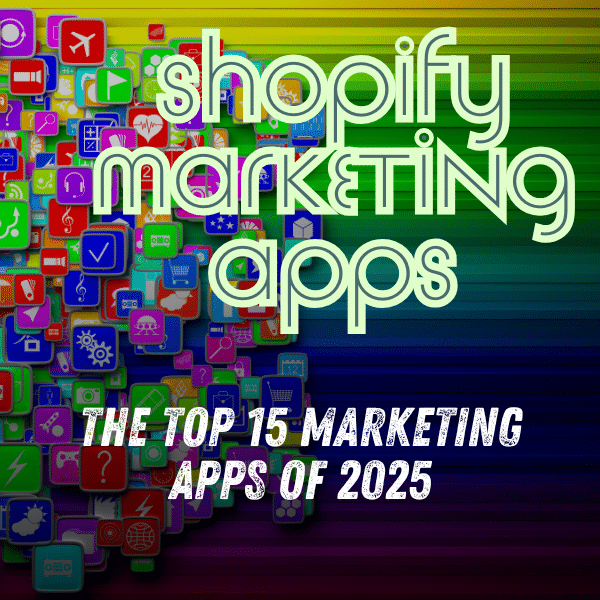Why you can trust Sunlight Media
- Expertise and Experience:Our content is crafted by seasoned professionals with extensive experience in digital marketing, ensuring you receive accurate and actionable advice.
- Unbiased Information:We provide impartial insights and recommendations based solely on what's best for your business, without any hidden agendas or promotions.
- Thorough Research:Our articles are backed by comprehensive research and the latest industry trends, ensuring you stay informed with reliable and up-to-date information.
- Transparency and Honesty:We believe in complete transparency. We disclose our sources, methodologies, and any potential conflicts of interest, so you can trust the integrity of our content.
- Continuous Improvement:We constantly review and update our content to reflect the latest developments in digital marketing, so you always have access to the most current and relevant information.

In today’s hyper-connected world, businesses are perpetually seeking avenues to get closer to their customers, optimize operational efficiency, and carve a distinct space in the market. Enter the realm of mobile applications—a powerful tool with the potential to transform businesses. But what exactly can a mobile business application bring to the table for a business? Dive in as we explore the myriad ways in which mobile apps can propel businesses into a new era of success and innovation.
Ways You Can Use Mobile Apps for Your Business

Mobile apps are more than just digital touchpoints; they are game-changers for businesses. They offer direct communication with customers, providing personalized experiences based on user preferences. From loyalty programs to real-time feedback, mobile apps bridge the gap between businesses and their audience, creating strong connections and fostering brand loyalty.
Moreover, they streamline operations. Businesses can use apps for inventory management, appointment scheduling, and even employee communication. With the added advantage of data analytics, these apps give insights into customer behavior, enabling businesses to refine their strategies and stay ahead in the competitive landscape.
Loyalty Apps
Loyalty apps play a pivotal role in nurturing and retaining loyal customers. By offering a platform tailored to enhance customer experience, these apps ensure that users feel valued and understood. Whether it’s through exclusive deals, personalized recommendations, or a points system, loyalty apps elevate the customer journey, making each interaction memorable.
Furthermore, these apps provide an invaluable channel for customer feedback. Through direct communication features and surveys, businesses can glean insights into what their patrons love or where improvements are needed. This two-way dialogue not only deepens trust but also fine-tunes the overall experience, ensuring that loyal customers keep coming back for more.
A prime example is the Starbucks Rewards app. This loyalty app not only allows customers to order and pay for their drinks and food seamlessly, but it also provides them with points for each purchase, which can later be redeemed for free items. Through the app, Starbucks collects customer feedback, learns about their preferences, and offers personalized deals, ensuring that their loyal customers have a reason to return. Such strategies have made the Starbucks app one of the most successful loyalty programs globally, emphasizing the app’s potential to boost customer experience and retain loyal patrons.
Shopping Apps

In the ever-evolving digital marketplace, shopping apps have become a cornerstone for businesses seeking to elevate customer satisfaction. By delivering a seamless mobile app experience, brands can offer users the convenience of browsing, selecting, and purchasing products with just a few taps. This streamlined process, complemented by intuitive design and real-time responsiveness, can greatly enhance the overall shopping journey.
But it’s not just about the user interface. Integrating customer service personnel directly into the app can further enhance the experience. Imagine having a query about a product and instantly accessing a customer service representative via the app’s chat feature. This blend of technology and human touch ensures that customers feel supported every step of the way, further cementing their loyalty and trust in the brand.
Customer Service Apps and Chatbots
In the realm of digital customer support, customer service apps paired with chatbots have revolutionized the way businesses engage with their audience. These tools offer instant, round-the-clock assistance, ensuring that users’ queries and concerns are addressed promptly. By leveraging advanced algorithms and AI, chatbots can simulate human interaction, offering solutions to common problems and guiding users through various processes, enhancing overall customer satisfaction.
Moreover, chatbots, integrated within customer service apps, provide a more efficient support system, reducing the wait times often associated with traditional customer support channels. This immediacy not only improves user experience but also allows businesses to handle a larger volume of inquiries with consistent accuracy and efficiency. The result? A more satisfied and loyal customer base that appreciates the swift and streamlined support.
Content Apps

In the vast digital landscape, content apps stand out as a powerful medium to engage and inform users. Unlike a traditional shopping app, which primarily focuses on transactions, content apps provide value through information, entertainment, or education. These platforms can seamlessly integrate features like a loyalty program, ensuring that users are rewarded and encouraged to return for more content, further deepening their connection with the brand.
Moreover, by offering high-quality and relevant content, businesses can attract potential customers who might initially be more interested in the content than the products or services. As these users become more engaged and familiar with the brand through the app, there’s a higher likelihood of them transitioning from mere content consumers to loyal customers. Thus, content apps serve as a strategic tool to captivate more customers and cultivate lasting relationships.
Who are your customers?

Understanding your customer base is the cornerstone of any successful business strategy. By delving deep into the demographics, preferences, and behaviors of your audience, you can tailor your products and services to cater precisely to their needs. This not only drives customer satisfaction but also ensures that your offerings resonate with those who matter most – your existing customers.
However, knowing who your customers are isn’t just about numbers and data. It’s about recognizing the faces and stories behind each purchase or interaction. By fostering relationships and truly understanding the dynamics of your customer base, you can cultivate trust, loyalty, and ensure that every client feels seen and valued.
How mobile-oriented are your customers?
In today’s digital age, it’s essential to gauge just how connected your customers are to their mobile devices. Are they consistently browsing, shopping, or interacting with brands via their smartphones? Understanding the mobile habits of your customer base allows businesses to tailor their digital strategies, ensuring that they meet users right where they spend most of their time.
Moreover, the level of mobile engagement can significantly influence the design, functionality, and features of your business app. If a substantial portion of your customers are mobile-savvy, it might be time to invest more in app development and mobile marketing. Conversely, if they’re less mobile-oriented, a balanced approach between desktop and mobile might be more apt. Either way, knowing your audience’s mobile habits is crucial in today’s digital landscape.
Provide More Value to Your Customers

In today’s competitive market, having your own mobile app can be the distinguishing factor that sets your business apart. A dedicated mobile app not only solidifies your brand’s presence in the digital space but also offers a platform tailored specifically to your customers’ needs. Through this custom mobile app, businesses can provide features, offers, and experiences uniquely catered to their target audience, enhancing the value of their offerings.
Furthermore, a custom mobile app can be a reservoir of personalized content, rewards, and user-specific deals. By offering such curated experiences, businesses show that they value their customers’ loyalty and are willing to go the extra mile to ensure their satisfaction. In a world swamped with generic experiences, your dedicated mobile app can be the beacon of tailored value your customers appreciate.
How does an app improve on your current website?
While websites are pivotal in establishing an online presence, mobile app development offers a set of distinct advantages that can elevate a brand’s user experience. Mobile applications are designed specifically for handheld devices, ensuring faster performance, streamlined navigation, and more intuitive user interactions. One of the key mobile app benefits is their ability to operate offline, allowing users to access core features without an active internet connection—a capability most mobile apps provide and most websites lack.
Moreover, mobile applications can tap into a device’s hardware and software features, such as the camera, GPS, or push notifications. This allows for more personalized user experiences, real-time updates, and enhanced engagement opportunities, which might be challenging to replicate on a traditional website. In essence, while websites lay the groundwork, mobile apps build upon it, offering deeper and more enriched user interactions. For businesses looking to develop such apps, leveraging robust backend systems through PHP development can enhance performance and scalability.
Build a Stronger Brand

In today’s digital world, establishing a robust brand identity is more critical than ever. Smartphone apps offer a unique platform to reinforce brand values, engage users actively, and create memorable interactions. Every element within the app, from its design to its functionality, can be tailored to echo your brand’s voice, aesthetics, and principles. This consistent brand presentation fosters trust and familiarity among users, making them more likely to return and engage with the brand repeatedly.
Furthermore, features like in-app purchases can amplify monetization opportunities while also providing added convenience to users. By merging utility with brand-specific experiences, smartphone apps not only enhance the user journey but also carve out a distinct space for your brand in the crowded digital marketplace. Over time, this consistent engagement and distinct identity solidify your brand’s position, making it more recognizable and influential.
Boost Brand Awareness
The ubiquity of the mobile device in today’s society presents an unparalleled opportunity for businesses to amplify their reach. Every time a user unlocks their phone, scrolls through their apps, or engages with notifications, there’s potential for interaction with your branded app. Having a presence right on the user’s personal device ensures that your brand remains top-of-mind and is consistently visible, contributing to increased brand recognition and recall.
Furthermore, a branded app serves as a direct marketing channel, allowing businesses to push updates, promotions, and news straight to the user’s device. This consistent and personalized communication fosters a deeper connection between the brand and its audience. Over time, as users engage and interact with the app, the relationship solidifies, leading to heightened brand awareness and loyalty.
Utilize Social Media Channels
Incorporating social media accounts into your business strategy can significantly amplify the reach and impact of your marketing campaigns. With billions of users actively engaging on platforms like Facebook, Instagram, and Twitter, these sites become prime marketing channels to promote products, share news, and interact with customers. By integrating push notifications in tandem with your social media activities, businesses can alert users about new posts, offers, or updates, ensuring consistent and real-time engagement.
Moreover, social media provides a two-way communication channel. While businesses can broadcast their messages, they can also listen to customer feedback, reviews, and discussions. This continuous interaction, combined with the analytics provided by these platforms, allows brands to refine their marketing campaigns, ensuring they are both relevant and resonant. In essence, social media channels, when leveraged effectively, can supercharge a brand’s presence and customer engagement.
Have a Competitive Edge in Your Niche

While many businesses still rely on traditional forms of communication like phone calls or emails, embracing mobile apps today can provide a distinct advantage in a saturated market. A well-designed app offers convenience, accessibility, and a unique user experience that can set your brand apart from the competition. With features tailored to the needs and preferences of your audience, you can address pain points more effectively and offer solutions that competitors might overlook.
Additionally, mobile apps present a golden opportunity to improve customer loyalty. By providing consistent value, whether through exclusive content, special offers, or seamless customer service, businesses can foster deeper relationships with their audience. Over time, this loyalty not only ensures repeat business but also transforms customers into brand advocates, further solidifying your competitive edge in the niche.
Find Valuable Consumer Insights
In the age of information, possessing deep customer insights is a game-changer for any business owner. Mobile apps, with their array of analytics tools, allow businesses to gather data on user behavior, preferences, and pain points. Instead of making phone calls or conducting extensive surveys, businesses can now access real-time information on how customers interact with their app, which features they love, and where they face challenges.
These insights, when properly analyzed, can guide business decisions, from product development to marketing strategies. By understanding what the consumer truly wants and needs, businesses can tailor their offerings and improve user experience. In essence, these valuable insights pave the way for more informed decisions, leading to increased customer satisfaction and business growth.
Provide Unique Services and Features

In the crowded digital space, offering unique services and features can set your app apart. By understanding your audience’s needs and industry gaps, businesses can innovate and introduce functionalities that are both fresh and valuable. This doesn’t merely retain current users but also attracts new ones, eager to experience the novel features. Furthermore, these unique offerings can become your brand’s signature, enhancing recognition and loyalty.
Apple’s Health App
Apple’s Health app is a prime example of providing unique features tailored to users’ needs. Beyond tracking basic fitness metrics, the app aggregates health data from various other applications, devices, and even medical records, giving users a comprehensive view of their health in one centralized location. This integration and holistic approach stand out in the plethora of health and fitness apps, underlining the value of distinct and user-centric features.
Conclusion
In the dynamic digital landscape of the 21st century, mobile apps have evolved from mere novelties to essential tools for businesses. They serve as direct channels to customers, providing brands the opportunity to offer unique experiences, gather valuable insights, and bolster brand awareness. Moreover, the interactive nature of apps fosters a deeper connection with users, creating avenues for sustained engagement and loyalty.
Starbucks
With its mobile app, showcases this transformation perfectly. The coffee giant integrated its loyalty program into the app, offering rewards, personalized deals, and the convenience of ordering ahead. This not only streamlined the customer experience but also reinforced Starbucks’ brand identity with each interaction.
Nike’s Training Club
Similarly, Nike’s Training Club app has revolutionized the way users view fitness. By providing tailored workout plans, progress tracking, and even motivational content from top athletes, Nike has extended its brand promise of inspiration and innovation into the digital realm.
As these examples illustrate, mobile apps are no longer optional add-ons; they are strategic imperatives. In the era where brand differentiation is paramount, having a mobile app can be the key to standing out, understanding your audience, and ultimately, driving business growth.













